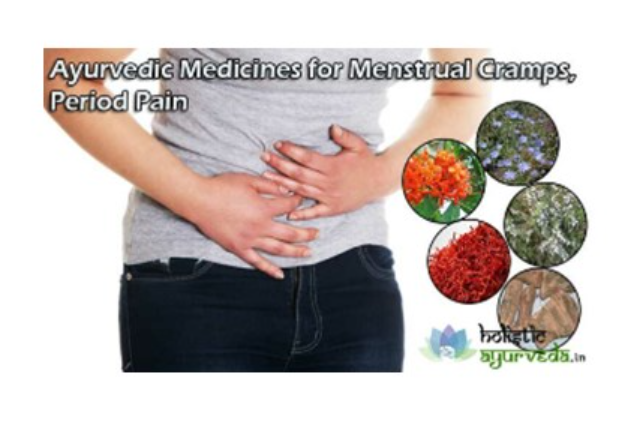
Ayurveda views menstruation as a purification process for women - a detox process. Far from it making the woman unclean or impure, the cycle helps in self-purification. It is the body’s mechanism of removing toxins and impurities. In fact, the cycle is seen as an advantage that only the woman has. A healthy menstruation, according to Ayurveda, lasts a few days and occurs every 28 days, from around the age of 12 until around 50.
Variations on this can occur due to imbalances to the Doshas, the mind-body energies that govern everything. These three Doshas, Vata, Pitta, and Kapha, describe the forces of nature both inside and outside our bodies as well as our own genetic makeup and it is in our interest to make lifestyle choices that keep them in balance.

Women whose periods begin later and who experience menopause later in life are more likely to live to be 90, new research suggests. It found that women who started menstruation at age 12 or older, experienced menopause, either naturally or surgically, at age 50 or older and had more than 40 reproductive years had increased odds of living to 90 years old.
In a finding that suggests a woman's periods might be a powerful indicator of her general health, researchers report that women with irregular and long menstrual cycles face a higher risk of early death. Young women with irregular periods need a thorough assessment, not only of their hormones and metabolism but also of their lifestyle so that they can be advised about steps that they can take which might enhance their overall healthIrregular and long menstrual cycles, often attributed to the functional disruption of the hypothalamic-pituitary-ovarian axis, are, however, common among women of reproductive age.
They have been associated with greater risk of non-communicable diseases, including ovarian cancer, coronary heart disease, type 2 diabetes, and mental health problems, through mechanisms probably related to a disrupted hormonal environment (e.g., hyperinsulinemia), chronic inflammation, and metabolic disturbances (e.g., insulin resistance, dyslipidemia, and metabolic syndrome),”
In Study Women who reported irregular cycles or no periods were more likely to have a higher BMI compared to those with very regular cycles (28.2 versus 25.0, respectively), hypertension (13.2% versus 6.2%), hypercholesterolemia (23.9% versus 14.9%), hirsutism (8.4% versus 1.8%), endometriosis (5.9% versus 4.5%), uterine fibroids (10.0% versus 7.8%), and a family history of diabetes (19.4% versus 15.8%).
- An analysis of data from the Nurses’ Health Study showed that irregular and long menstrual cycles during adolescence and adulthood are associated with a greater risk of early death.
- In women with longer and more irregular menstrual cycles throughout their lives, researchers found stronger associations between early mortality and cardiovascular disease and current smoking status.
Ayurvedic Herbs for Irregular Periods

- Ashoka To prepare the decoction, 10 grams of the bark of Ashoka needs to be boiled in 2 cups of water until only about a cup remains. Honey or jaggery can be added to decoction to make it easier to drink.
- Hibiscus. consume hibiscus is in the form of Hibiscus tea. The relaxing herbal tea works like an Ayurvedic tonic for irregular periods.
- Mulethi it’s tea is also very useful
- Asafetida (heeng ) By stimulating the production of the female hormone progesterone that increases blood flow to the uterus, it regularizes periods and regulates the menstrual cycle. One great way to include Heeng in the diet is to add it with buttermilk.
The female body is truly unique and beautiful. If we align it to its natural cycle by following a good lifestyle and diet, we can alleviate ourselves from problems that are caused by hormonal imbalances. Ayurveda provides with solutions that really work at the root level to solve the problem of irregular periods naturally

. . .
Reference:
- Research from SanDiego School of Medicine
- Charak Samhita
